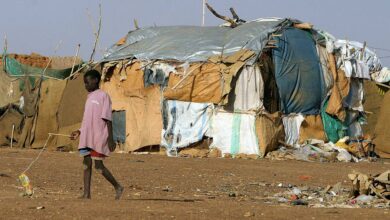Sri Lanka in race against time to save the growing season

Colombo, Jun 2 (EFE).- Sri Lankan President Gotabaya Rajapaksa announced Thursday that India will provide the island nation with the amount of fertilizer needed to meet the demands of farmers, who began the growing season amid uncertainty about their crops.
“Indian Prime Minister Narendra Modi has agreed to provide the fertilizer required for the Yala season (from May to August) cultivation immediately,” the President’s Media Division (PMD) of Sri Lanka said in a statement.
“The fertilizer will be supplied under the Indian loan facility and it is scheduled to distribute within 20 days of receiving it in Sri Lanka,” it added.
The island nation is going through the worst economic crisis since its independence from the British Empire in 1948, with shortages of fertilizers as well as other essential goods such as medicines, food or fuel.
The outbreak of the conflict in Ukraine made things worse by causing a global rise in prices, which further depleted the Asian nation’s reserves.
The beginning of one of the two annual growing seasons – running until the end of August – in the island and the fear that the harvest would not be enough to feed everyone, raised doubts among the population.
According to the statement, 50 percent of the arable land under government ownership has already been cultivated.
Moreover, Irrigation Minister Roshan Ranasinghe said that 250,000 orchards have been planned for additional crops, adding that they have accommodated several land, which was not originally intended for agriculture, to accommodate part of the harvest.
In anticipation of Indian aid, Agriculture Minister Mahinda Amaraweera urged farmers this week to be optimistic, ensuring that they would be given the fertilizers they demanded, and urged them to “return to their rice paddies” to help overcome the food crisis.
The fertilizer problem in Sri Lanka dates back to April 2021, when Rajapaksa suddenly vetoed its use, aiming to save foreign exchange while making the island the first nation with 100 percent organic produce.
Although the measure was reversed in November, the lack of chemical fertilizers and pesticides, along with the shortage of organic agricultural products, caused many farmers to suspend harvesting of rice, leading to 50 percent loss of the crop.
Apart from fertilizers, Sri Lanka is trying to negotiate the import of 65,000 tons of rice from India. EFE
aw-hbc/sc





